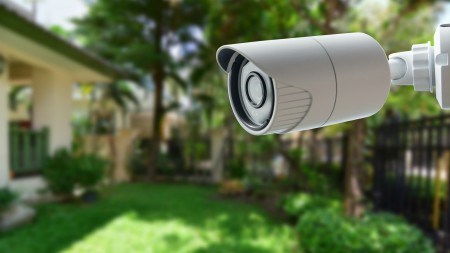Home safety measures that every home owner needs to know.
Due to the unpredictable nature of home accidents, homeowners should ensure that they have all the necessary safety precautions in place to be able to handle every situation efficiently.
Regional Director and CEO of RE/MAX of Southern Africa, Adrian Goslett, explains that to protect their home and everyone inside it, homeowners should always be prepared for an emergency. “Whether it be a fire or an accident, time will be working against you, so having a strategic exit plan or a well-equipped first aid kit on hand could save you or a family member’s life,” he advises.
Although homeowners cannot plan for every eventuality, RE/MAX of Southern Africa shares a few basic home safety precautions worth implementing to minimise harm.
Create an exit strategy
It may seem extreme to have an exit strategy; however, it is an essential part of home safety. Homeowners should take the time to create and practice an evacuation plan in the event of an emergency. Start by drawing a floor plan of the home. Then, outline two routes for every room within the home. If applicable, create an alternative route for those with disabilities. For all routes, always create a designated meeting spot. To make sure everyone remembers the exit plan, practice the exit strategy with everyone in your home at least twice a year.
Though this might seem like a troublesome exercise to go through, Goslett encourages all homeowners, at the very least, to have a short discussion with everyone in the home where they outline a rough exit plan that is simple enough for all to understand and execute in times of panic.
Stock up your first-aid kit
The basics of any well-stocked first-aid kit include: a thermometer, plasters of different sizes, antiseptic ointment, gauze, disinfectant, burn care products, scissors, tweezers, and wound-closing strips. Your kit should also include painkillers, antihistamine tablets, gut health medication for constipation, diarrhoea and indigestion, as well as cold and flu medicine for sore throats, congestion and a cough syrup. Homeowners need to check their kit regularly to replenish supplies and replace expired medicines. Eye drops, for example, need to be thrown out 30 days after opening or they will do more harm than good.
For those looking for a shortcut, there are prepacked first-aid kits that have all the essential items. That being said, it is still advisable to personalise your first-aid kit to suit the needs of your family. Consider how big your family is to ensure that you have enough of the necessities and modify the kit to treat any allergies in your family.
Check you fire extinguisher
Invest in a fire extinguisher and keep it in an easily accessible area in the home. To ensure that it is in a fully operational state, inspect the fire extinguisher at least once a month. Things to look out for include any noticeable damage, leakage, changes in the pressure gauge and corrosion.
“If a fire is not handled correctly, it can have a devastating outcome. Not only does it put your family at risk, but it can create severe damage to the property as well. Investing in a smoke dictator and fire extinguisher are good ways to minimise these risks. Saving the number of your closest fire department in your phonebook is another vital part of being prepared for an emergency,” says Goslett.
Make sure your home security system is working
Once a home security system installed, many take it for granted that the system continues to work. But, most security systems need to be serviced annually and the batteries on some sensors may need to be replaced at regular intervals. Security cameras and alarm sensors also need to be dusted regularly to ensure they continue to be effective. Homeowners should also regularly check that the slam-lock functions on security gates are still effective and that their burglar bars are still tightly fastened and not easily removed.
As a final recommendation, Goslett reiterates that prevention is always better than cure. “Having a strategic plan for home emergencies may not be on top of the to-do list, but homeowners should consider how quickly home accidents can occur. Home safety is not something homeowners should ever take lightly, as this could have devastating consequences for them and their families,” Goslett concludes.




